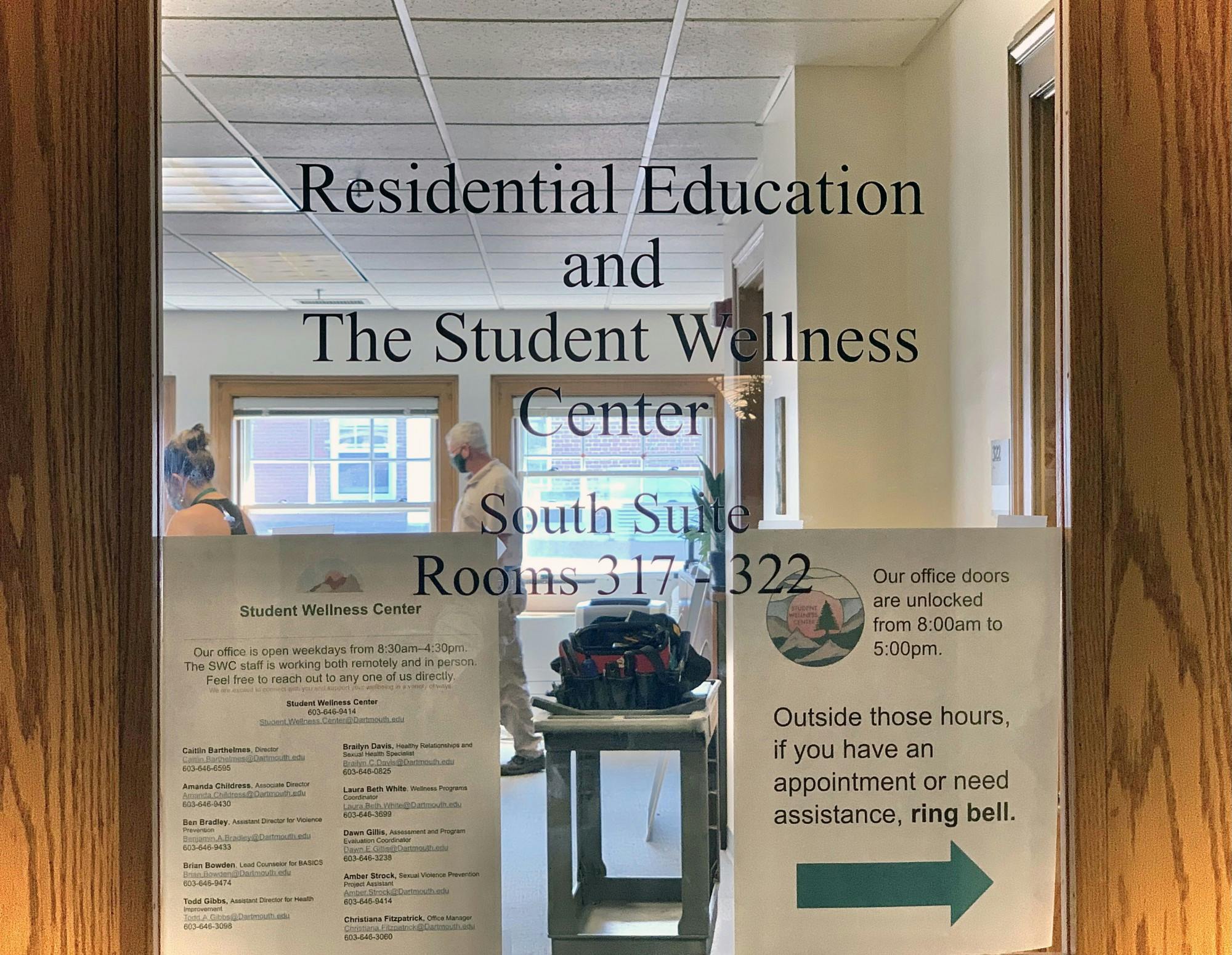Mental health resources on campus continue to offer remote services due to the accessibility of digital support and concerns about COVID-19.
Although the vast majority of classes are now being held in-person, Dick’s House Counseling Center director Heather Earle wrote in an emailed statement that 60% of students continue to access counseling over Zoom. Earle added that digital counseling can expand the geographic scope of resources for students in need of help.
“If a student is looking for a counselor in the community, the geographic area opens up widely with Zoom,” she wrote. “A licensed counselor anywhere in the state of NH could conduct therapy with a student.”
Typically, the Counseling Center refers students to outside counselors for long term care if needed after an initial phone or Zoom triage appointment. Some 25-28% of students will engage with the Counseling Center during their time at Dartmouth, Earle wrote.
The main reason that students choose to continue with Zoom counseling, Earle wrote, tends to be due to concerns about COVID-19. She added that though some students focus better during in-person counseling and find it easier to “open up,” others find Zoom more convenient.
Dartmouth Mental Health Union peer support program co-director Pulkit Nagpal ’23 said that remote peer support checks can remove the stigma associated with mental health and allow students to avoid a walk across campus. He noted that six days per week, trained MHU peer counselors are available over Zoom or in person to consult with students.
Before the pandemic, the MHU supported about one student every two weeks, Nagpal said. The pandemic, however, led to a surge in demand: by fall of 2020, the MHU was working with four people per week, a number that has since dropped to one or two students per week this term.
In-person peer support has its benefits, according to Nagpal, who said that it may contribute to “more emotional connection.”
“I think that is vital to have, especially when the person coming in may be struggling,” Nagpal said.
Earle also noted that Zoom can make it “more difficult” for counselors to observe body language due to a lack of non-verbal cues. She added that digital sessions are subject to technical difficulties and that students sometimes struggle to find a private place to chat.
Student Wellness Center director Caitlin Barthelmes said that the center maintains a hybrid model, similar to the Counseling Center and MHU. She said that SWC online resources were limited before the pandemic, and the center now aims to provide as many “touch points” as possible for students to interact with wellness programming.
“The more variety you have, the more likely they can become embedded into your life,” Barthelmes said.
For example, Barthelmes said that in-person yoga and meditation offered by the SWC is complemented by an online library of recorded resources, available anytime to students. The SWC is currently collecting data about student engagement with its in-person and remote offerings, but Barthelmes said such information will not be available until the end of the term.
Barthelmes said that the SWC’s cohort of student interns helps staff stay on top of “the pulse” of students’ wellness needs. The center will be making adjustments to their services beginning this winter to ensure they “best meet student needs.”
“We know that being a Dartmouth student is complex and we want to continue to provide a menu of options so that folks can engage when, where, and how feels most supportive to cultivating their own wellbeing,” Barthelmes wrote in an emailed follow-up statement.




